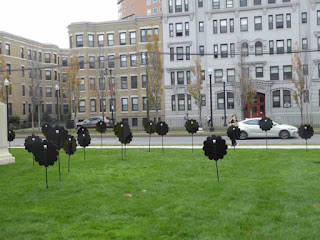for our democracy and why we might consider bringing back civics classes:
Why Are Millennials Wary of Freedom?
Young Americans seem to be losing faith in freedom. Why?
According
to the World Values Survey, only about 30 percent of Americans born
after 1980 believe it is absolutely essential to live in a democratic
country, compared with 72 percent of Americans born before World War II.
In 1995, 16 percent of Americans in their late teens and early
adulthood thought democracy was a bad idea; in 2011, the number
increased to 24 percent.
Young Americans also are disproportionately skeptical of free speech. A
2015 poll
from the Pew Research Center found that 40 percent of millennials (ages
18 to 34) believe the government should be able to regulate certain
types of offensive speech. Only 27 percent of Gen-Xers (ages 35 to 50),
20 percent of baby boomers (ages 51 to 69) and 12 percent of the silent
generation (ages 70 to 87) share that opinion.
For
many conservative commentators, especially those concerned with
attitudes on college campuses, this is merely more evidence of the
deleterious influence of the radical left in academia. But while
ideology certainly plays a role here, these trends transcend political
party affiliation, as a number of recent polls indicate.
A
2016 Gallup survey
found that a majority of both Democratic and Republican students
believe colleges should be allowed to restrict speech that is purposely
offensive to certain groups. A
survey of students’ attitudes
concerning free speech released on Wednesday by the Foundation for
Individual Rights in Education found that 66 percent of Democratic and
47 percent of Republican students believe there are times a college
should withdraw a campus speaker’s invitation after it has been
announced. And a
survey published by the Brookings Institution
in September found that 20 percent of Democratic and 22 percent of
Republican students agreed it was acceptable for student groups to use
violence to prevent a person from speaking.
If
wariness of democracy and free speech does not represent a political
position, what does it represent? What unites so many young Americans in
these attitudes? I propose that the answer is fear — the ultimate enemy
of freedom.
Parental
culture in this country has become increasingly guarded and safety
focused, as illustrated by the rise of “helicopter parenting.” The
benefits of increased safety are many. But somewhere along the way,
protecting children from needless harm became conflated with shielding
them from stressors and uncertainties (such as having to solve everyday
problems, like getting lost, on one’s own) that are critical for
developing personal independence.
Researchers have linked helicopter parenting to college students’ having
a lower degree of self-confidence. Relatedly, a
study released last month
found that today’s teenagers and young adults are less likely than
those of past generations to engage in a range of activities that
involve personal independence, such as working for pay, driving, dating
and spending time with friends without adult supervision.
Colleges
and universities have exacerbated the problem of dependence by
promoting what is sometimes called a culture of victimhood. American
college students (who are some of the safest and most privileged people
on the planet) are to be protected from, and encouraged to be
ever-vigilant about and even report, any behavior that could cause
emotional distress. Feelings and experiences that were once considered
part of everyday life, such as being offended by someone’s political
views, are now more likely to be treated as detrimental to mental
health.
Making the problem worse, victimhood culture is “contagious.”
Studies have shown that when one group is accused of causing harm to others, members of the accused group become more inclined to feel that
their group is being discriminated against.
There
may be some benefits to an increased sensitivity to students’
psychological vulnerabilities. Young people today face unique stressors,
such as the ease of harassment presented by social media. But instead
of helping, a culture of victimhood worsens the underlying problem.
Fear,
in all its forms, is at the heart of these issues — fear of failure,
ridicule, discomfort, ostracism, uncertainty. Of course, these fears
haunt all of us, regardless of demographics. But that is precisely the
point: Our culture isn’t preparing young people to grapple with what are
ultimately unavoidable threats. Indeed, despite growing up in a
physically safer and kinder society than past generations did, young
Americans today
report higher levels of anxiety.
Fear
pushes people to adopt a defensive posture. When people feel anxious,
they’re less open to diverse ideas and opinions, and less forgiving and
tolerant of those they disagree with. When people are afraid, they cling
to the certainty of the world they know and avoid taking physical,
emotional and intellectual risks. In short, fear causes people to
privilege psychological security over liberty.
What
can be done? It isn’t enough to criticize young people for being overly
sensitive and insufficiently independent. They didn’t engineer our
security-focused culture. We must liberate them, let them be free to
navigate the social world, make mistakes, fail, experience emotional
pain and learn to self-regulate fear and distress. If we want future
generations to have faith in freedom, we need to restore our faith in
them.
Clay Routledge is a professor of psychology at North Dakota State University.











